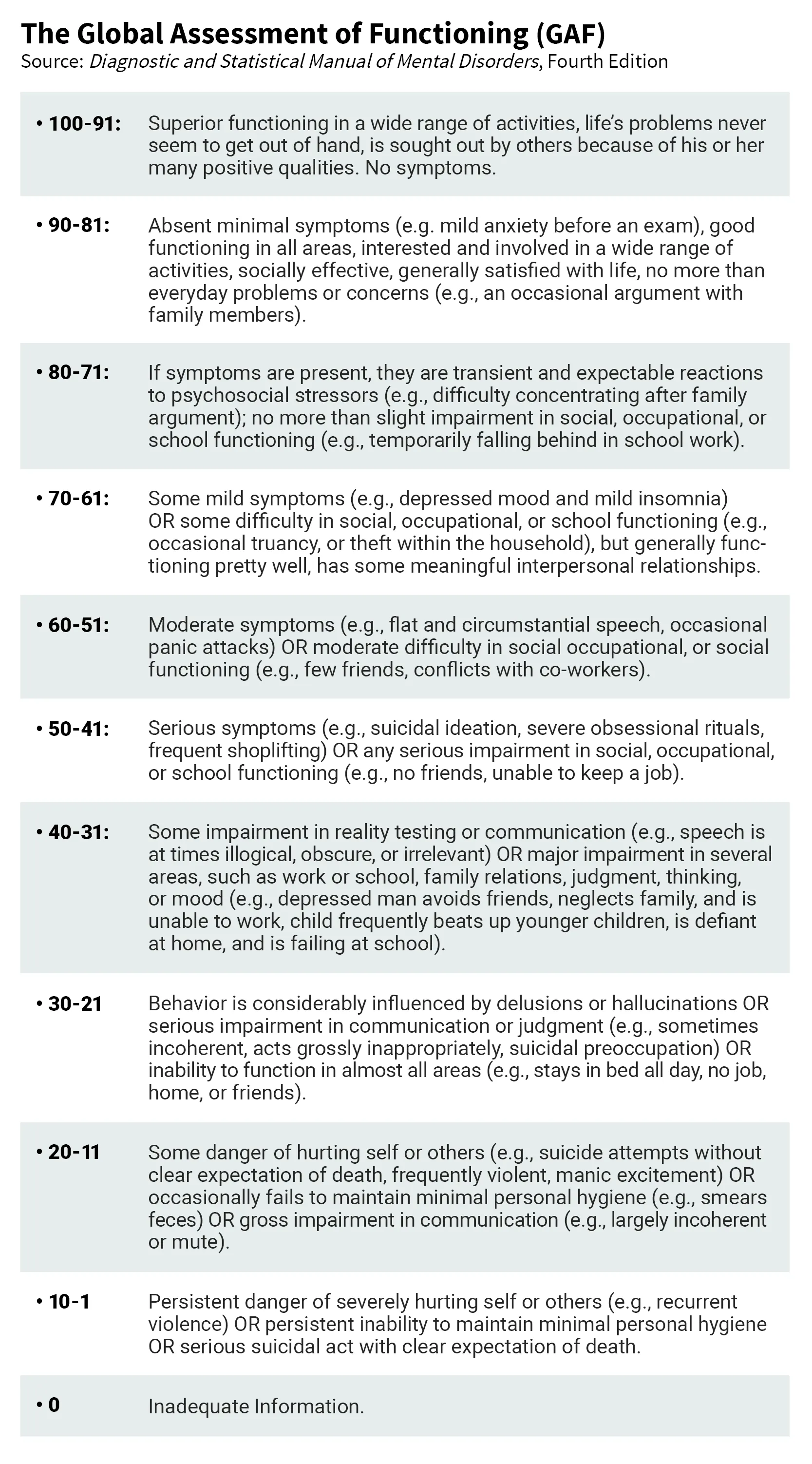The Global Assessment of Functioning, or GAF, scale is used to rate how serious a mental illness may be. It measures how much a person's symptoms affect their day-to-day life on a scale of 0 to 100.
It's designed to help mental health providers understand how well the person can do everyday activities. The score can help figure out what level of care someone may need and how well certain treatments might work.
The GAF is based on a scale that was first used in 1962. It's been updated over time. In 2013, the manual that psychiatrists in the U.S. use to define and classify mental disorders dropped it in favor of a scale designed by the World Health Organization. But government agencies and insurance companies, as well as others, still use it and aren't expected to replace it any time soon.
The Scale
A GAF rating can be based on many things, including:
- An interview or questionnaire
- Medical records
- Information from the person's doctor, care givers, or close relatives
- Police or court records about violent or illegal behavior
It's broken into 10 sections. These are known as anchor points. The higher your score, the better you're able to handle daily activities:


